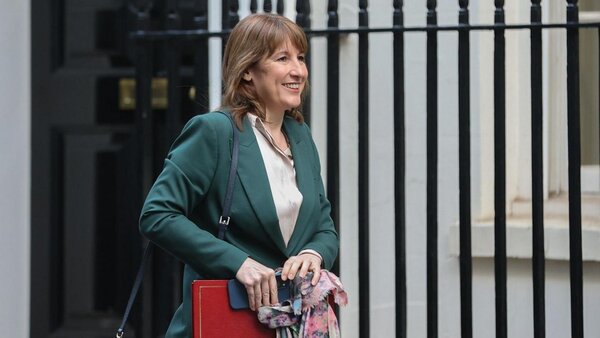Enforcement Action in Scottish Borders
Trading standards officers from Scottish Borders Council conducted the investigation that led to the referral to HMRC. The enforcement action took place at a commercial premises in Galashiels, a town with approximately 12,600 residents located in the heart of the Scottish Borders. Officials have confirmed that the shop was reported for tobacco related offences, though specific details of the alleged violations have not been publicly disclosed at this stage. The investigation reflects standard procedures whereby local trading standards teams work in partnership with HMRC to monitor and enforce tobacco legislation. Such collaborative approaches are increasingly common as authorities seek to address non compliance across multiple regulatory frameworks simultaneously.
Details of the Investigation
The investigation involved examining tobacco products stocked at the premises, along with an assessment of sales practices and record keeping procedures. Trading standards officers are empowered to inspect retail premises without prior notice to ensure compliance with various consumer protection and product safety regulations. While the exact nature of the alleged offences has not been specified, tobacco related violations can encompass several areas. These may include selling tobacco products to underage individuals, stocking illicit or counterfeit tobacco, failing to display appropriate health warnings, or not maintaining required documentation. The referral to HMRC suggests potential concerns regarding duty payment, product authenticity, or other fiscal matters that fall within the revenue authority's remit.
Regulatory Framework for Tobacco Sales
Tobacco sales in the United Kingdom are governed by comprehensive legislation designed to protect public health and ensure proper tax collection. The Tobacco and Related Products Regulations 2016 implemented strict controls on tobacco products, including standardised packaging requirements and restrictions on point of sale displays. Retailers must obtain appropriate licenses and adhere to age verification protocols to prevent sales to individuals under 18 years old. The legislation also prohibits the sale of certain tobacco products, including those that do not meet manufacturing standards or lack proper duty payment. HMRC plays a central role in enforcing aspects of tobacco control related to taxation and the illicit tobacco trade. The agency estimates that tobacco duty fraud costs the UK exchequer hundreds of millions of pounds annually, driving intensive enforcement efforts.
Impact on Local Business Community
The investigation and subsequent referral have implications for the wider retail community in Galashiels and the Scottish Borders. Legitimate retailers who comply fully with tobacco legislation may face unfair competition from establishments that circumvent regulations or sell illicit products at lower prices. Trading standards services emphasize that enforcement actions serve to level the playing field and protect compliant businesses. Scottish Borders Council's trading standards team regularly conducts inspections and test purchasing operations to maintain standards across the retail sector. The council has not named the specific premises involved, consistent with standard practice during ongoing investigations. However, the public referral serves as a reminder to all retailers about the importance of maintaining strict compliance with tobacco control measures.
HMRC's Ongoing Tobacco Enforcement Strategy
HMRC maintains an active enforcement program targeting the illicit tobacco trade throughout the United Kingdom. The agency conducts regular operations in partnership with local authorities, police forces, and Border Force to disrupt supply chains and prosecute offenders. Recent figures indicate that HMRC has intensified efforts to combat tobacco duty evasion and the sale of illegal tobacco products. The agency employs intelligence led approaches, combining tip offs from the public, data analysis, and coordinated multi agency operations. Penalties for tobacco related offences can be substantial. Businesses found in violation may face financial penalties, seizure of illegal products, and potential criminal prosecution. In serious cases, individuals can receive custodial sentences, particularly where organized criminality is involved.
Legal Consequences and Compliance Requirements
Retailers reported to HMRC for tobacco offences face a range of potential consequences depending on the nature and severity of violations. The agency conducts thorough investigations that may include detailed examination of financial records, stock inventories, and supply chain documentation. Civil penalties can include substantial fines calculated based on the duty evaded or the value of illicit products. HMRC also has powers to assess businesses for unpaid duty and impose additional charges for non compliance. In cases involving deliberate evasion or serious breaches, criminal prosecution may follow. Retailers can protect themselves by implementing robust compliance systems. These include maintaining detailed records of tobacco purchases from legitimate wholesalers, conducting regular staff training on age verification, and ensuring all products meet regulatory standards. Many trade associations offer guidance and support to help businesses navigate the complex regulatory landscape.
Final Summary
The referral of a Galashiels shop to HMRC for tobacco related offences underscores the ongoing commitment of regulatory authorities to enforce tobacco control legislation across Scotland. Trading standards officers from Scottish Borders Council conducted the investigation that led to the formal report, demonstrating the collaborative approach between local authorities and national agencies in addressing retail compliance issues. While specific details of the alleged violations remain undisclosed pending further investigation, the case highlights the serious consequences facing retailers who fail to meet their legal obligations regarding tobacco sales. From ensuring proper duty payment to preventing underage sales and avoiding illicit products, the regulatory framework demands strict adherence across multiple dimensions. For the wider retail community, the enforcement action serves as a clear reminder of the importance of maintaining robust compliance systems. Legitimate businesses that invest in proper procedures and staff training protect themselves from legal consequences while contributing to public health objectives and fair market competition. The case also reflects HMRC's broader strategy to combat the illicit tobacco trade, which costs the UK exchequer substantial revenue while undermining public health initiatives. As investigations continue, the incident reinforces that regulatory authorities maintain active oversight of tobacco retail practices and will take decisive action when violations are identified. For consumers and businesses seeking clarity on tax obligations and compliance requirements, staying informed about regulatory developments remains essential.










